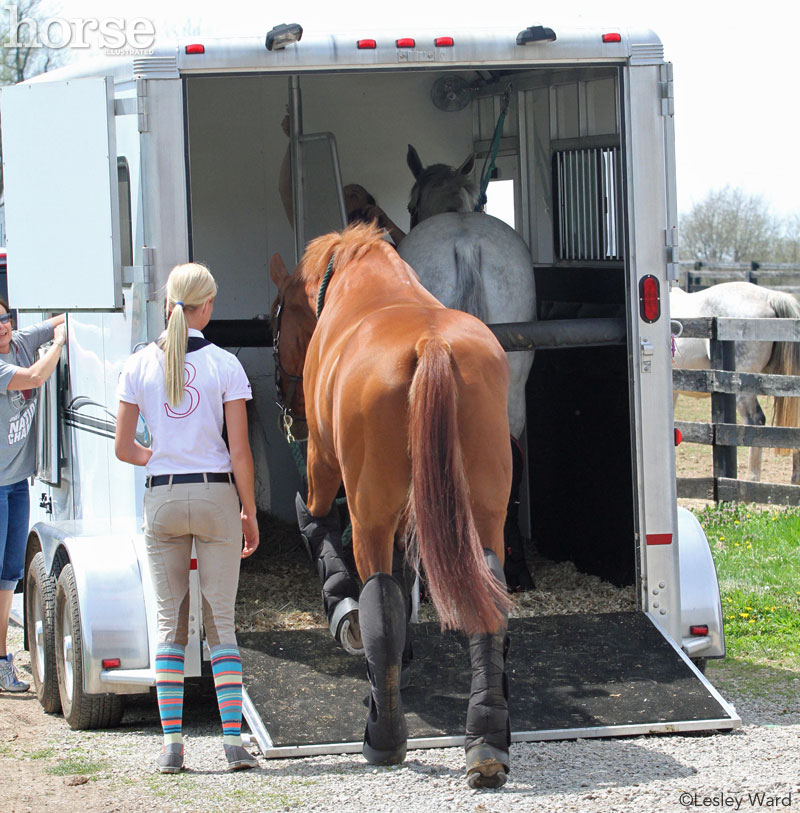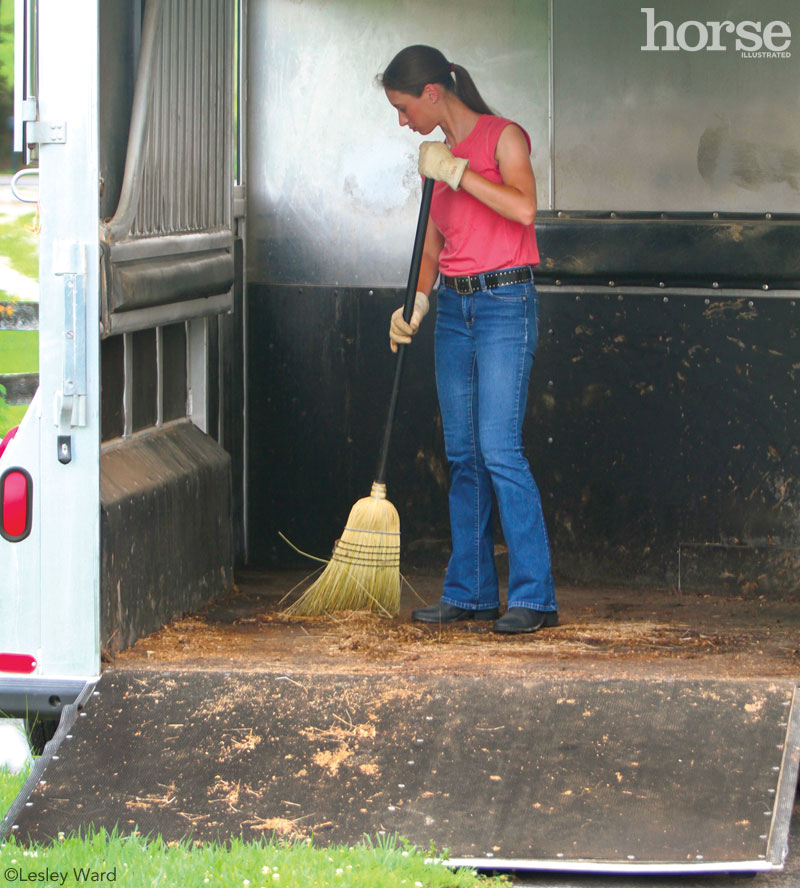
When you don’t own your own truck and trailer, finding ways to get out and about can be difficult. If you don’t want to relegate your horse to being a homebody forever, you’ll need to explore your options for getting around.
Ridesharing
Many professional trainers offer to haul horses to shows or events that multiple clients will be attending. Though hauling fees can vary by location and who is driving, you can typically expect to pay about $0.55 per mile or a set cost per trip (this is especially true if you are having your horse hauled locally).
If you would like to get off the farm more often, make it known to fellow boarders or horse-owning friends nearby that you are looking for rides, as well as where you would like to go. If other riders at your barn own horse trailers, it never hurts to ask them directly if they’re traveling anytime soon to see if you can hitch a ride. If nothing else, they might keep you in mind for their next adventure.
The advent of social media has made it even easier to locate people who might haul your horse. Posting on Facebook pages that have a large local audience can be just the trick to getting off the farm on a regular basis. Locating a ride this way is easier if you are very specific about when and where you want to go; instead of posting, “Looking for a buddy to trail ride with anytime,” you could say, “Looking to go to a state park to trail ride the weekend of March 14.” That way, even if someone hadn’t been thinking about it before, their interest might be piqued enough to plan a trip and take you along.
Additionally, if you’re just searching for someone to take your horse somewhere and drop you off—not necessarily stay and ride with you—the network of local horse haulers is deep and wide. Ask other trailerless friends who they use to ship their horses and see if you might set up a group outing utilizing one hauler.
Be a Polite Passenger
Before your horse sets foot on someone else’s trailer, be up front about discussing any issue your horse might have. For example, if your mare doesn’t load readily, but does eventually get on, make sure you let the driver know in order to schedule adequate time to load and arrive at the destination. This is especially important if you’re catching a ride to a show or other event where you’re meeting other riders at a specific time.
If you’re hauling along with a friend somewhere, it’s always courteous to split the gas or diesel bill. If your friend has already filled up, be sure to ask what you can pay her for her time and wear and tear on her truck and trailer. Even if you’re both going to the same place, it’s courteous to pay (or offer to pay) her something for her efforts.
When loading the trailer to prepare for your adventure, be respectful of her tack room and truck. Don’t just throw things in willy-nilly where you’ll have to step over them repeatedly. If it’s muddy, attempt to wipe off your boots before stepping into the tack room. If you have a dog, be sure to ask if he can come along before assuming it’s OK for him to hop right in the truck. While most horse people love dogs, some might not welcome one in their vehicle.
When you arrive at your destination and upon returning home, make an effort to help clean out the trailer. This means not only mucking any manure from the stall area, but also helping drag the mats out to hose the floors if your horse opted to relieve his bladder on board. Pick up any trash left in the vehicle and remove all your tack and other gear promptly from the trailer.

When You’re the Driver
Whether you’re the one offering the ride or you are the guest, understand that if something happens to the horses, tack or rig, it could potentially ruin a friendship—and lead to a lawsuit.
While hauling another horse (or horses) in addition to your own makes sense economically, if you’re the one providing the ride, do your homework to ensure you’re not opening yourself up to potential legal action, notes Kristin Detwiler, agribusiness/equine specialist with Gibson Agri & Equine Insurance in Ohio. While it can be awkward to bring up, it’s worthwhile to consider having the owner of the horse you are hauling sign a liability release. If you happen to get into an accident, this signed document will discourage lawsuits in the first place, and will help prevent action from being taken against you should it go to court. It’s recommended that you use a release that is specifically designed by an equine attorney and that it deals only with ridesharing.
Detwiler explains that this document should not only state that the hauler is held harmless for injury or death to people or horses, but it also specify that if the hauled horse causes any damage to the trailer or the truck that the owner of the horse will pay for it to be repaired.
Traditional auto insurance will provide coverage for damage to both the tow vehicle and the vehicle(s) you collide with, but it generally doesn’t cover damage to the horse trailer or its contents. Because of this, if you expect to haul regularly, Detwiler suggests that it’s worth investigating adding your horse trailer to your insurance policy.
Most companies will insure your trailer for both collision and comprehensive insurance for a very modest fee per month (think $20 every 6 months). This doesn’t insure the horses inside the trailer (equine-specific insurance covers horses), but it will cover physical repairs to a damaged trailer. If you would also like to insure the contents of your tack room, inquire about adding a rider to your homeowner’s policy.
SARAH E. COLEMAN is a freelance writer based in Kentucky. She competes her off-track Thoroughbred in the hunters.
This article originally appeared in the July 2015 issue of Horse Illustrated magazine. Click here to subscribe!




